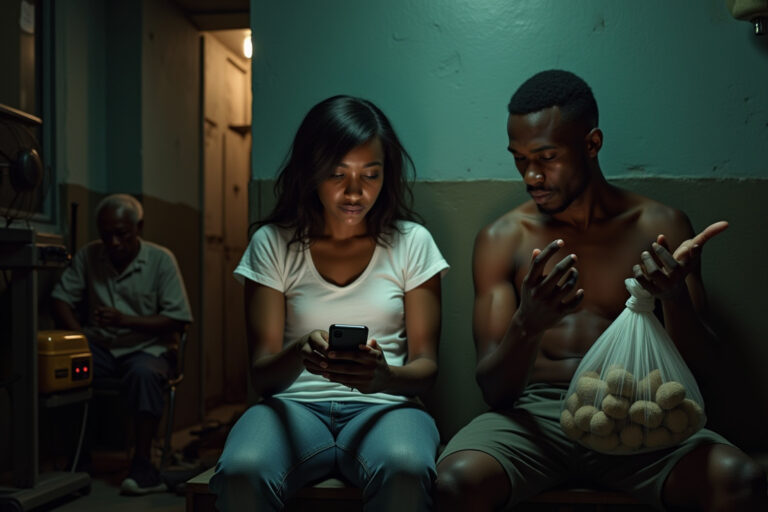The generator was humming. The kind of low, persistent hum that makes you question your life choices.
Kemi sat on the edge of a wooden bench in a small barber’s shop turned hangout spot in Mushin, eyes fixed on her phone screen, scrolling through a thread titled “When last did Nigeria shock you?” The answers ranged from hilarious to heartbreaking.
Just then, Chike burst in, sweaty, wide-eyed, and carrying a nylon bag of puff-puff.
“Dem don close registration o!” he shouted.
Kemi didn’t look up. “What registration?”
“Voter registration! INEC closed am last night.”
She blinked.
“You dey play?” she asked.
Chike dumped himself on the bench beside her, breathing like he had just run a marathon through Lagos traffic. “I swear. I just check now. No PVC, no voting, no shouting.”
Kemi stared at the ceiling, as if hoping answers might fall from the rusted zinc above them.
“So I no go fit vote because I no stand under sun like roasted plantain last week?” she muttered.
The baba in the corner, who had been pretending to nap under a wall fan that didn’t spin, suddenly piped up.
“Young people of nowadays,” he said, voice gravelly. “Plenty ginger online, but when it is time to show face, everybody vanish like PHCN light.”
Chike turned. “Oga, we sef get sense. This government no dey change.”
The baba snorted. “And it is that same sense that keeps all of you outside the decision-making room.”
Silence.
Only the hum of the generator remained, faithful as ever.
Here’s the thing: if you don’t show up, someone else decides for you.
They decide what fuel costs. They decide the condition of the hospital you’ll rush to at 2 a.m. They decide if your cousin in public university will graduate before the next World Cup.
Civic engagement is not a vibe. It’s a responsibility.
It is your voice in how the country is run. It is what keeps democracy alive, or lets it die quietly in a dusty file at the back of a government office.
Some will say, “E no dey work. Everything don spoil.”
But look again. People are organising. Grassroots groups are forming. Digital platforms are booming. The street protests you joined? They moved things. Maybe not everything. But something.
The real danger isn’t a bad system. It’s a good generation that refuses to participate.
So, young Nigerian, ask yourself:
Will you still be on the bench when the next decision about your future is made?
Or will you reach for the remote and start changing the channel?
Register. Vote. Speak. Demand. Repeat.
Because tweeting is not the same as voting.
And shouting “God, abeg” is not a policy plan.
This is not just about politics. It’s about power.
And you already have it.
Use it. Hold your own remote.





